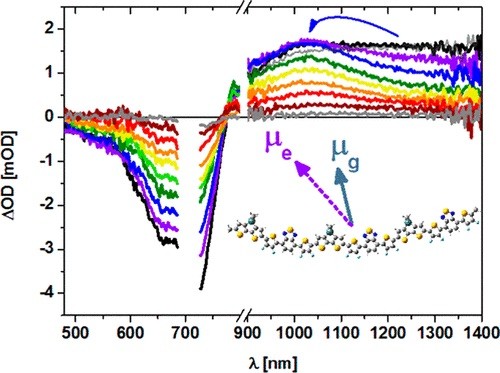Increased Exciton Dipole Moment Translates into Charge-Transfer Excitons in Thiophene-Fluorinated Low-Bandgap Polymers for Organic Photovoltaic Applications
Collado-Fregoso, Elisa; Boufflet, Pierre; Fei, Zhuping; Gann, Eliot; Ashraf, Shahid; Li, Zhe; McNeill, Christopher R.; Durrant, James R.; Heeney, Martin
CHEMISTRY OF MATERIALS
2015
In this study, we investigate the role of thiophene fluorination in a low-bandgap polymer for organic photovoltaic applications. We use a combined theoretical and experimental approach to investigate charge generation and recombination dynamics, and their correlation with blend microstructure and polymer dipole moment. We find that fluorination results in an increased change in the dipole moment upon exciton formation, which is correlated with the appearance of charge-transfer excitons, as evidenced from ultrafast transient absorption studies. Fluorination also results in smaller yet purer domains, evidenced by atomic force microscopy and resonant soft X-ray scattering, and in agreement with photoluminescence quenching measurements. This change in film morphology is correlated with a modest retardation of nongeminate recombination losses. The efficient charge generation and slower recombination are likely to be partly responsible for the enhanced device efficiency in the fluorinated polymer/fullerene devices.


